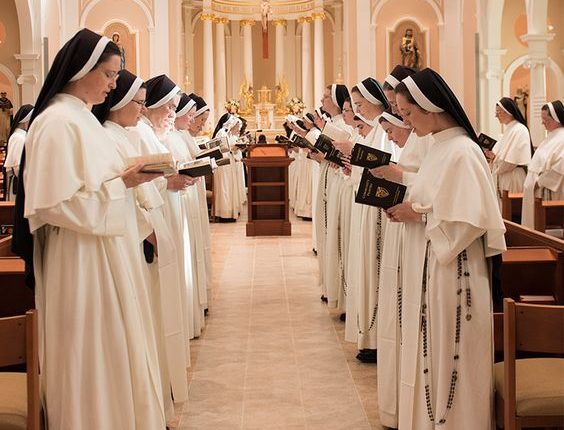Jesus tells us about three kinds of eunuchs. ‘Those who have been so from birth, those who have been made eunuchs by others, and there are eunuchs who have made themselves eunuchs for the sake of the kingdom of heaven’ (Mt 19:12).
Indeed it is something difficult to understand, and Jesus knew it well, and he was candid in admitting it. ‘Not everyone can accept this teaching, but only those to whom it is given’ (Mt 19:11). Still not satisfied whether his disciples could follow his advice, Jesus adds a postscript too.‘Let anyone accept this who can’ (Mt 19:12).
We read about a eunuch who was so blessed with grace in the Book of Acts, that he was able to accept the good news with an open heart when Philip explained the word of God to him. His conversion was so instant that he demanded baptism the very moment! The Scripture tells us that after his encounter with Jesus, this man ‘went on his way rejoicing’ (Acts 8:39). We are not sure whether this man was a eunuch from birth or he was made so by others. Either way, he went his way rejoicing.
We know women who go their way rejoicing after meeting their Lord and committing their future life to him. We call them nuns. They are often insulted, mocked, humiliated and scoffed at. Like daughter Jerusalem (Lam 2:15) ’All who pass along the way clap their hands, and hiss and wag their heads at them’. They stoop down to the level of comparing the habit, especially the veil of nuns to a reprehensible instrument invented in the seventh century to make women subservient in a patriarchal tribal society.
Some others are pained about the life of a nun who is confined within the convent ‘without any freedom’. On their part the media also highlight with unimaginable enthusiasm, stray cases of one or two nuns breaking their vows. In their insatiable desire to go sensational they often target nuns.
Why are our nuns treated so badly by society in general and the media in particular? There is only one answer. Those who criticize and blame nuns could not grasp the meaning of the sacred vocation that the nuns have accepted. The grace to understand the mystery of vocation is obscured from their eyes that are already blinded by their over- dependence on reason and total negation of faith. If we appreciate this fact, we can, at least, look at those poor souls with sympathy. They judge things with limited human intelligence. It is natural that any judgment of spiritual things using the yardstick of material knowledge is bound to fail. Paul spells out the reason. ‘Those who are unspiritual do not receive the gifts of God’s Spirit, for they are foolishness to them, and they are unable to understand them because they are spiritually discerned’ (1Cor. 2:14).
Those who revel in material pleasures can never understand the true joy that is characteristic of asceticism. They make the generalization that nuns are also like them and measure the life of a nun with the same scale that they invented for their convenience. On the other hand those few who truly appreciate the golden statement that ‘the flesh is useless’ (Jn 6:63) will never mock the brave ones who voluntarily opted for a monastic life.
True nuns are those who were lucky to find out the treasure hidden in the field. They had taken the worthy decision to exchange everything they possessed to buy the land. To the onlookers, their life would seem eccentric. But for the nuns, they fix their eyes on things up in heaven. Like Mary of Nazareth, they also know at the time of giving their ‘fiat’ to the call of their Lord, that sufferings, persecution, and insults are going to be their companions.
Those who scoff at them now seldom know whom they attack. But a day is coming. Then ‘the righteous will stand with great confidence in the presence of those who have oppressed them and those who make light of their labors’ (Wis 5:1). Then those scoffers ‘will speak to one another in repentance, and in anguish of spirit they will groan, and say, “These are persons whom we once held in derision and made a byword of reproach- fools that we were! We thought that their lives were madness and that their end was without honor. Why have they been numbered among the children of God? And why is their lot among saints? So it was we who strayed from the way of truth” (Wis 5:3-6). If the fate of those who derided Jesus was this way, it will be no different for those who jeer at nuns who leave everything behind and follow the Lord through the arduous path of asceticism.
Except for certain religions that still follow the errors propagated from early middle ages, monasticism is prevalent in most religions. But the difference in monasticism as practiced in Christianity and other religions is notable in that in Christianity it is more organized and structured. This has also been a reason for criticism against it.
Contrary to what critics say, the monastic life of Christian women is not a recent invention. There were Desert Mothers who followed Desert Fathers, and led a life of seclusion. Some others started living in communities. Both were called ‘Amma’ which translates into ‘Servant’ (of the Lord). Amma Syncletica, Theodora, Amma Sarah of the desert, Melania, and St Paula were prominent in the list of early desert mothers.
What the Holy Bible says about priests is applicable to nuns too. ‘One does not presume to take this honor, but takes it only when called by God, just as Aaron was’ (Heb 5:4). Someone becomes a nun only because God called her to a life detached from this world. Majority of those who level unwarranted allegations against the life of nuns are those who fail to acknowledge that God does call certain persons to accomplish certain missions.
Among them are atheists, non- believers and also lukewarm believers in great numbers. There are others who have gone wrong in their knowledge about God. Another group is of those who ‘ though they knew God, they did not honor him as God or give thanks to him, but they became futile in their thinking, and their sense-less minds were darkened’ (Rom 1:21). Among the critics are also those who, in spite of being ignorant in spiritual matters, claim themselves to be wise, and in that process become fools’ (Rom 1:22).
What prompts a girl to make the difficult decision to become a nun? It is a universal truth that the interests of a married person will be divided between his or her spouse and God. Paul explains; ‘The married man is anxious about the affairs of the world, how to please his wife, and his interests are divided……. the married woman is anxious about the affairs of the world, how to please her husband’ (1 Cor 7: 32-34). The commitment to leave this world and follow Christ is at the root of every girl’s decision to become a nun. They take this hard decision so as to invest all their interests at a single point- at the foot of the cross of their Lord.
The role model of every devout woman is the Blessed Virgin. If she was allowed to go through a life of sorrow, her daughters are also called to go through the same experience. At least they should expect a portion of what their mother went through. If you find a nun who was not subjected to any kind of ridicule or derision, it means that they seriously lack something vital in their monastic life.
It was Jospeh, the just husband of Mary who saved her from the ignominy of being branded as a woman who became pregnant before marriage. Good husbands shelter their wives from every attack, every allegation. As for nuns, their bridegroom is Jesus Christ and he being the son of Joseph will never fail to protect his brides from the evil eyes of the world. It is an established fact that not a single nun who sought consolation from any other source completed her race to satisfaction.
‘Brides of Jesus Christ’ is not a misnomer. Dear sisters, stand up against those who make even that name to mock you. Be assured that your reward is guaranteed, but not in this world. On the other hand, no nun who worked for a reward from this world could ever claim that she was faithful to her vocation.
Let us pray: Blessed Virgin Mary, queen of virgins, pray for our nuns.

















